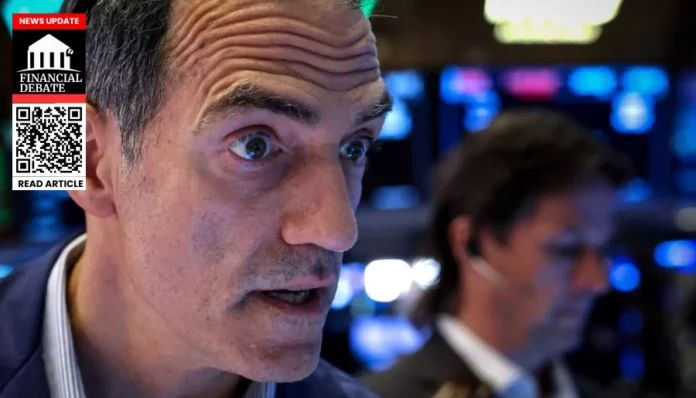Nvidia made a significant impact in the market with its shares swinging by about $10 from the session lows to the day’s high. The stock ended the day higher by 8%, showcasing its resilience and investor confidence. Nvidia’s CEO, Jensen Huang, instilled further optimism among investors as he spoke at the Communacopia conference, highlighting the strong demand for Nvidia’s key Blackwell chip. Despite being 17% below the June 20 high, the stock has skyrocketed by 136% so far in 2024.
Impact of Rising Bond Yields
The market witnessed a remarkable turnaround, with the S&P 500 experiencing a 154-point swing from morning lows to afternoon highs. CNBC’s Mike Santoli emphasized the role of rising bond yields in this shift, indicating a renewed sense of confidence among stock investors. The Dow and Nasdaq Composite also saw significant fluctuations throughout the day, underscoring the market’s sensitivity to external factors such as bond yields.
The recent uptick in yields has challenged the market dynamics, prompting investors to reassess their strategies and portfolio allocations. Sectors like real estate, utilities, and financials have thrived amidst the changing landscape, offering attractive yields in a low-rate environment. Energy and communication services, however, have struggled to keep pace, facing downward pressure in the last three months.
Insurance Sector Vulnerabilities
The insurance sector faced headwinds following investor concerns regarding potential regulatory changes in the event of a Vice President Kamala Harris victory. Stocks like Travelers, Hartford Financial, and W.R. Berkley experienced notable declines, reflecting the market’s apprehension towards policy shifts and their impact on business operations. The sector’s performance over the past few months highlights the volatility and uncertainties prevailing in the industry.
Renewable Energy Market Dynamics
The renewable energy sector, particularly solar stocks, witnessed a surge in prices following Vice President Harris’ favorable position in the electoral race. Companies like First Solar, Canadian Solar, Sunrun, and SolarEdge recorded impressive gains, fueled by the growing interest in green energy solutions. The Invesco Solar ETF (TAN) also saw a notable rise, signaling increasing investor appetite for sustainable investments.
Boeing’s stock performance and upcoming contract deal with union members present a mixed outlook for the aerospace giant. While the stock remains significantly below its December 21 high, the outcome of the contract vote could influence Boeing’s trajectory in the coming months. Additionally, Kroger’s earnings release and the ongoing legal battle surrounding its proposed merger with Albertsons highlight the regulatory challenges faced by companies in highly competitive industries.
The market’s response to geopolitical, economic, and corporate events underscores the dynamic nature of investing. Understanding the interplay between various factors and sectors is essential for making informed decisions and navigating the complexities of the financial landscape. As investors continue to adjust their strategies in response to changing market conditions, staying adaptable and well-informed remains crucial for long-term success.
